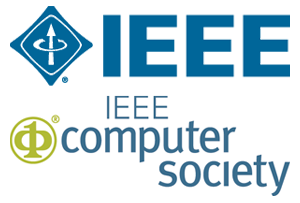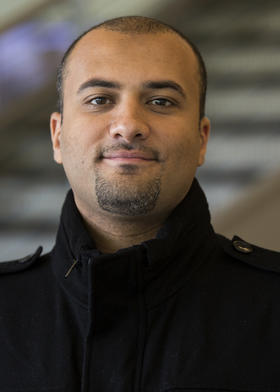
IEEE MIPR 2018
Miami, Florida, USA
April 10-12, 2018
List of Co-localted Workshops
Workshops Keynote

- Mohamed Abouelenien
- Assistant Professor, University of Michigan-Dearborn
- Abstract:
- In order to improve different aspects of our life and develop enhanced, personalized technologies, we need to understand human behavior. However, human behaviors are complex, vary significantly, and are difficult to model and predict. In this talk, I will describe a multimodal framework that allows us to capture multiple diverse signals that are reflective of human behaviors, thereby enabling us to understand several human-centric phenomena such as deception, stress, discomfort, alertness or affect. Moreover, I will discuss the effect of adding demographic information, such as gender, on the modeling process, which also encompasses multimodal inputs covering language, vision, physiological signals, and thermal maps, and present the challenges we encountered and the observations we made along the way. I will show how a multimodal approach that simultaneously leverages multiple input modalities is more capable of identifying the corresponding behavior than models that rely on one modality at a time. The talk will conclude with a discussion of what lies ahead in the multimodal interaction field.
- Biography:
-
Mohamed Abouelenien is an Assistant Professor in the Department of Computer and Information Science at the University of Michigan-Dearborn. He was a Postdoctoral Research Fellow in Electrical Engineering and Computer Science Department at the University of Michigan, Ann Arbor from 2014-2017. In 2013, he received his Ph.D. in Computer Science and Engineering from the University of North Texas. His areas of interest broadly cover data science topics, including applied machine learning, computer vision, and natural language processing. He has worked on a number of projects in these areas, including affective computing, deception detection, ensemble learning, video and image processing, face and action recognition, and others. His recent research involves data analytics projects as well as modeling of human behavior for different applications. Abouelenien has published extensively in international journals and conferences in IEEE, ACM, Springer, and SPIE. He also served as the chair for the ACM Workshop on Multimodal Deception Detection, a reviewer for IEEE Transactions and Elsevier journals, and a program committee member for multiple international conferences.

- Lilli Levi
- Professor of Law, University of Miami
- Abstract:
- Lili Levi is a Professor of Law at the University of Miami School of Law. She currently teaches Business Associations, Copyright Law, and Media Law, and has previously taught International Copyright Law and Defamation and Privacy Law. Professor Levi earned an A.B. summa cum laude in philosophy from Bryn Mawr College in 1977 and a J.D. cum laude in 1981 from Harvard Law School. She then worked as a litigation associate with the law firm of Paul, Weiss, Rifkind, Wharton & Garrison and as Broadcast Counsel with CBS, Inc., before joining the UM faculty in 1987. Her scholarship focuses primarily on communications and media law. She is an elected member of the American Law Institute.
- Biography:
-
“Fake news” has become the central inflammatory charge in media discourse in the United States since the 2016 presidential contest. Deployed not only to damn particular stories but to delegitimize the traditional press as a whole, “fake news” presents profound—and likely increasing—challenges for both the public and private spheres today. Recognizing that no single—or simple—tactic is sufficient to address the harms of “fake news,” in this talk I will discuss a three-pronged approach—focusing on platform self-regulation, audience information literacy approaches responsive to the lessons of cognitive science, and—perhaps counterintuitively—empowerment of the press itself through expanded legal protections for newsgathering and publication. Tools to empower the professional press can help forge alliances between the conservative and liberal wings of the traditional media, thereby isolating and minimizing the impact of newly-rising alt-right media entrants. If given expanded protections, the professional press can transform the modern context of “fake news” into an opportunity to shine as watchdog and, hopefully, thereby rebuild public trust.

- Rada Mihalcea
- Professor of Computer Science and Engineering, University of Michigan
- Abstract:
- Much of what we do today is centered around humans — whether is building cars, developing the next generation smartphones, or creating new social media platforms. A better understanding of people can not only answer fundamental questions about “us” as humans, but can also facilitate the development of enhanced, personalized technologies. In our lab, we developed a multimodal framework that allows us to capture multiple diverse signals that are reflective of human behaviors, thereby enabling us to understand several human-centric phenomena such as discomfort, alertness, stress, affect, or deception. In this talk, I will describe our framework, the setup that supports this framework, and present several projects that we have been working on in this space.
- Biography:
-
Rada Mihalcea is a Professor in the Computer Science and Engineering department at the University of Michigan, where she directs the Artificial Intelligence lab. Her research interests are in computational linguistics, with a focus on lexical semantics, graph-based algorithms for natural language processing, and multilingual natural language processing. She serves or has served on the editorial boards of the Journals of Computational Linguistics, Language Resources and Evaluations, Natural Language Engineering, Research in Language in Computation, IEEE Transactions on Affective Computing, and Transactions of the Association for Computational Linguistics. She was a program co-chair for the Conference of the Association for Computational Linguistics (2011) and the Conference on Empirical Methods in Natural Language Processing (2009), and a general chair for the Conference of the North American Chapter of the Association for Computational Linguistics (2015). She is the recipient of a National Science Foundation CAREER award (2008) and a Presidential Early Career Award for Scientists and Engineers (2009). In 2013, she was made an honorary citizen of her hometown of Cluj-Napoca, Romania.




